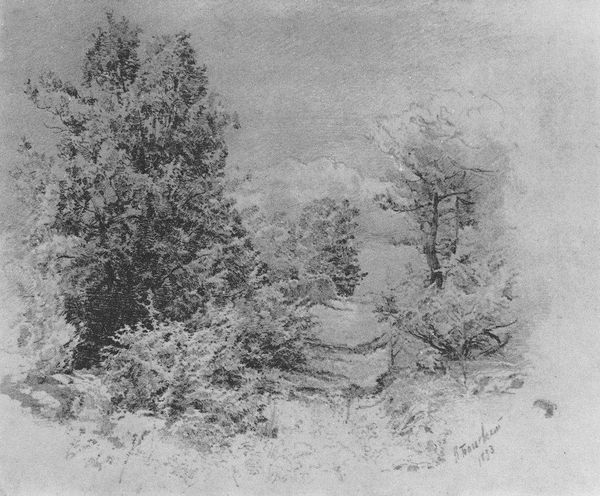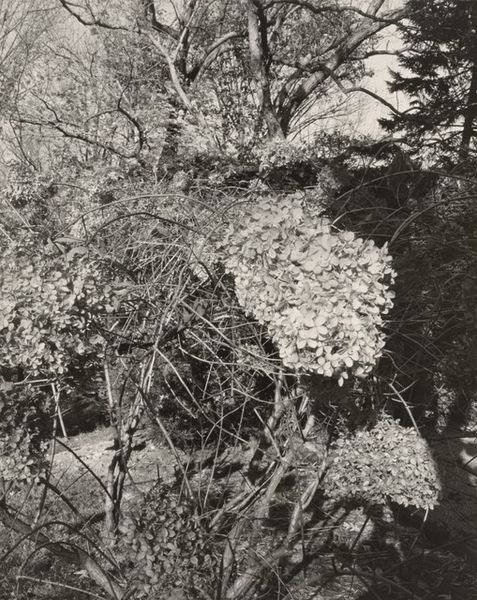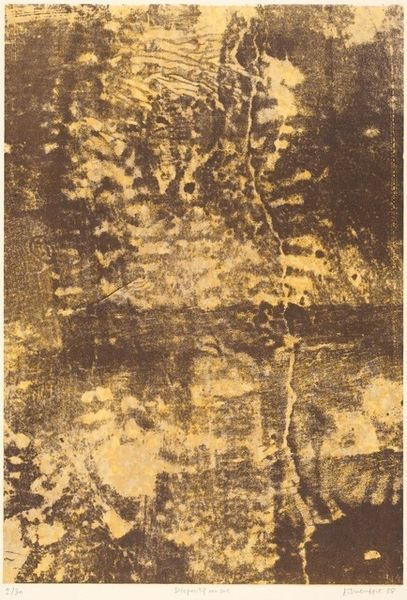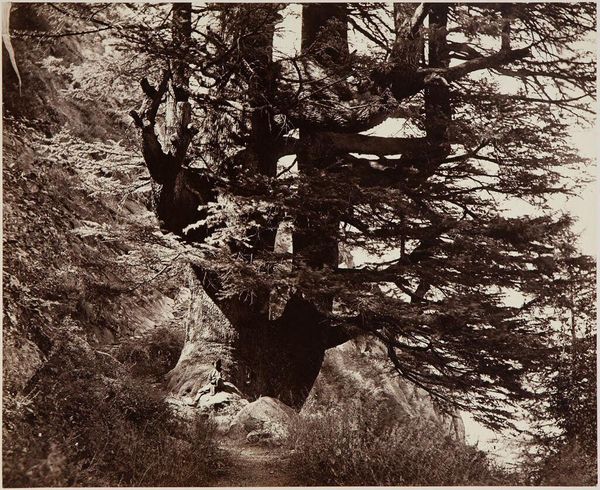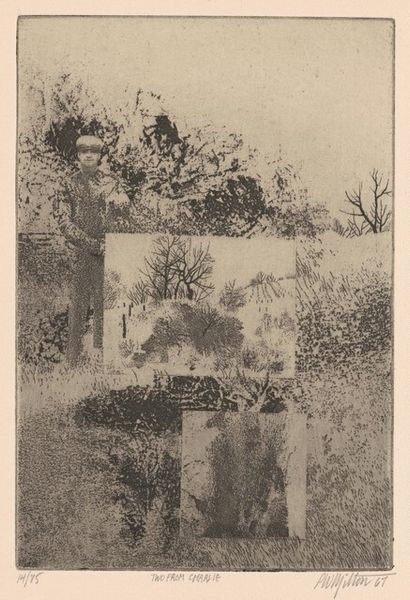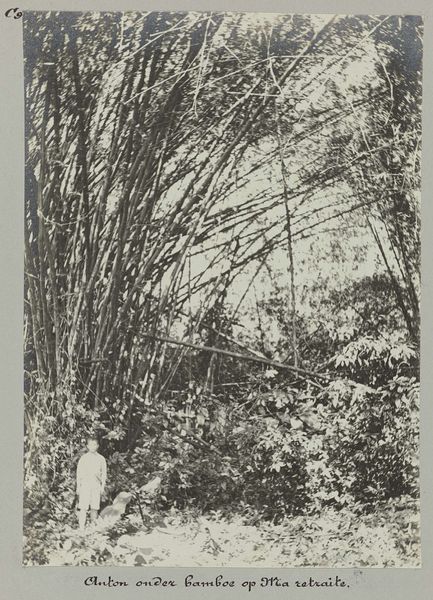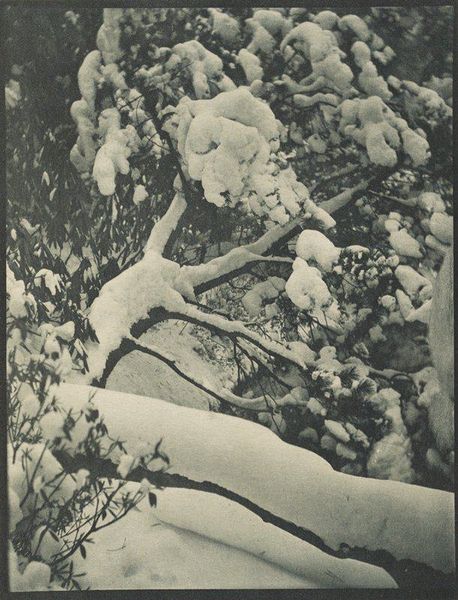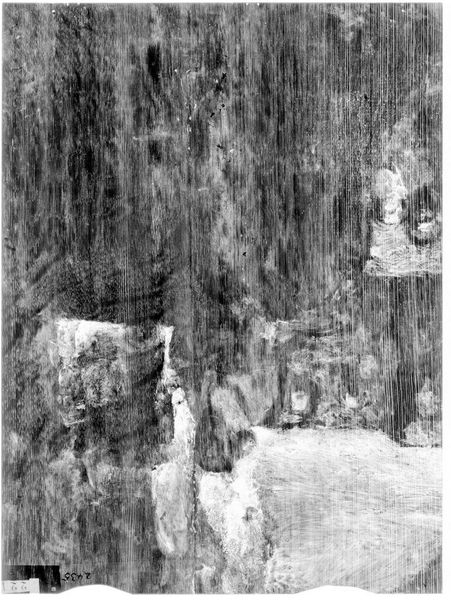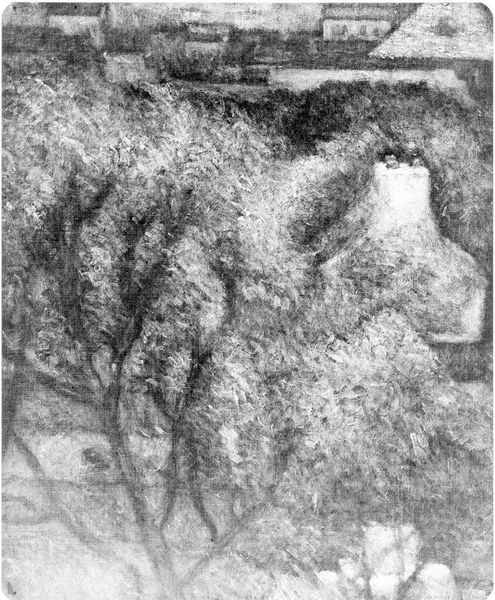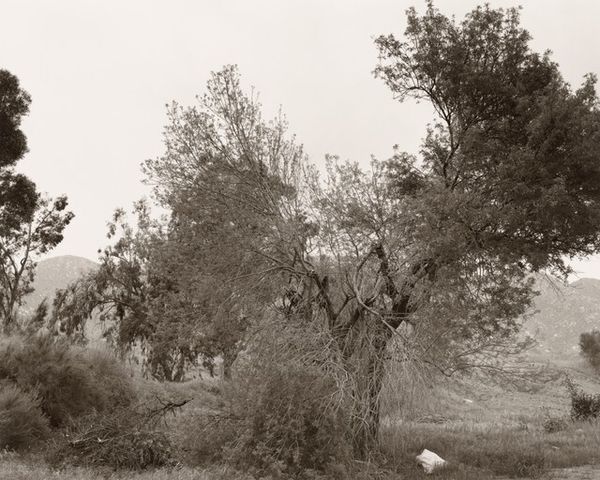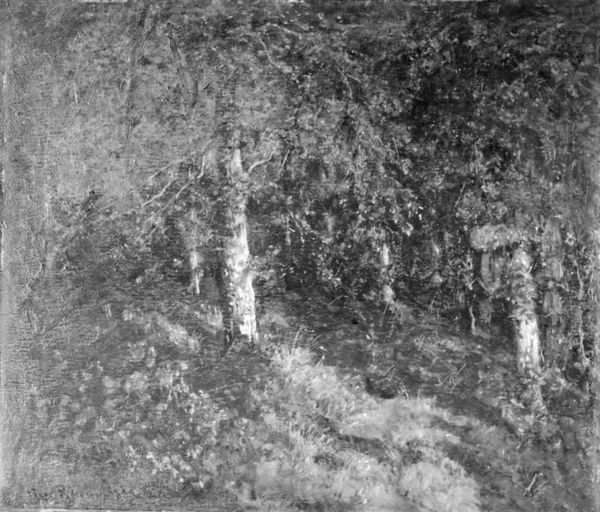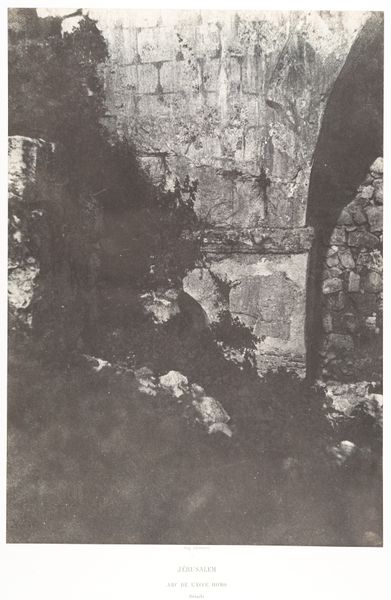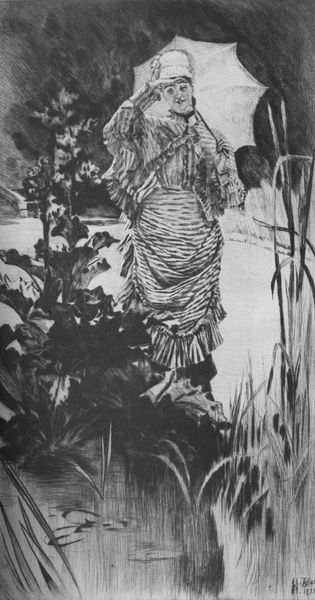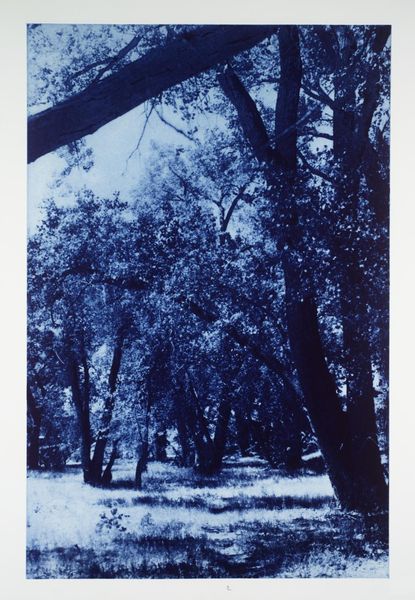
drawing, ink
#
tree
#
drawing
#
landscape
#
nature
#
ink
#
plant
#
botany
#
realism
Copyright: Avigdor Arikha,Fair Use
Curator: Avigdor Arikha’s "Jerusalem Cypresses and Lavender" from 1977 is an ink drawing, a study in black and white, now residing here at the Tate Britain. What strikes you about it? Editor: Initially, the contrast. The stark black ink against the white paper lends a certain severity, almost somber quality, doesn't it? It feels like a landscape etched in memory. Curator: Memory is key, I think. Arikha worked a lot from direct observation, focusing on the immediacy of seeing. The drawing medium allows for a really direct trace of the hand, and those rapid marks mimic how quickly the eye takes in form and translates that observation into line. Editor: These Cypresses, culturally, are deeply symbolic. They frequently mark graveyards and sites of remembrance, linking this image quite profoundly with mourning and contemplation of mortality. Lavender, though often associated with calmness, is also intensely fragrant and sharp. What is its symbolic weight here? Curator: Perhaps it represents the enduring beauty even amidst somber reflection. It adds to that layering of materiality as well; that textural interplay between the rough scratching that defines the foliage, and the comparative smoothness of the paper base, helps generate that sensation. Editor: I see your point. This drawing transcends a simple representation of landscape and morphs into a place for meditation. The bare paper amplifies this spiritual element, almost as if these botanical subjects become visual prayers. Curator: And it underscores his interest in direct, almost unmediated representation of his subject matter; stripping everything back to bare essentials— paper, ink, rapid movements, which allow Arikha to represent a transient sensory moment, even time itself. Editor: Indeed. This discussion reminds me to consider how even simple means create complex visual codes. I'll look at this piece differently now. Curator: It has given me an enhanced appreciation for how artistic processes can encapsulate experience in more nuanced ways than I'd considered initially.
Comments
No comments
Be the first to comment and join the conversation on the ultimate creative platform.
